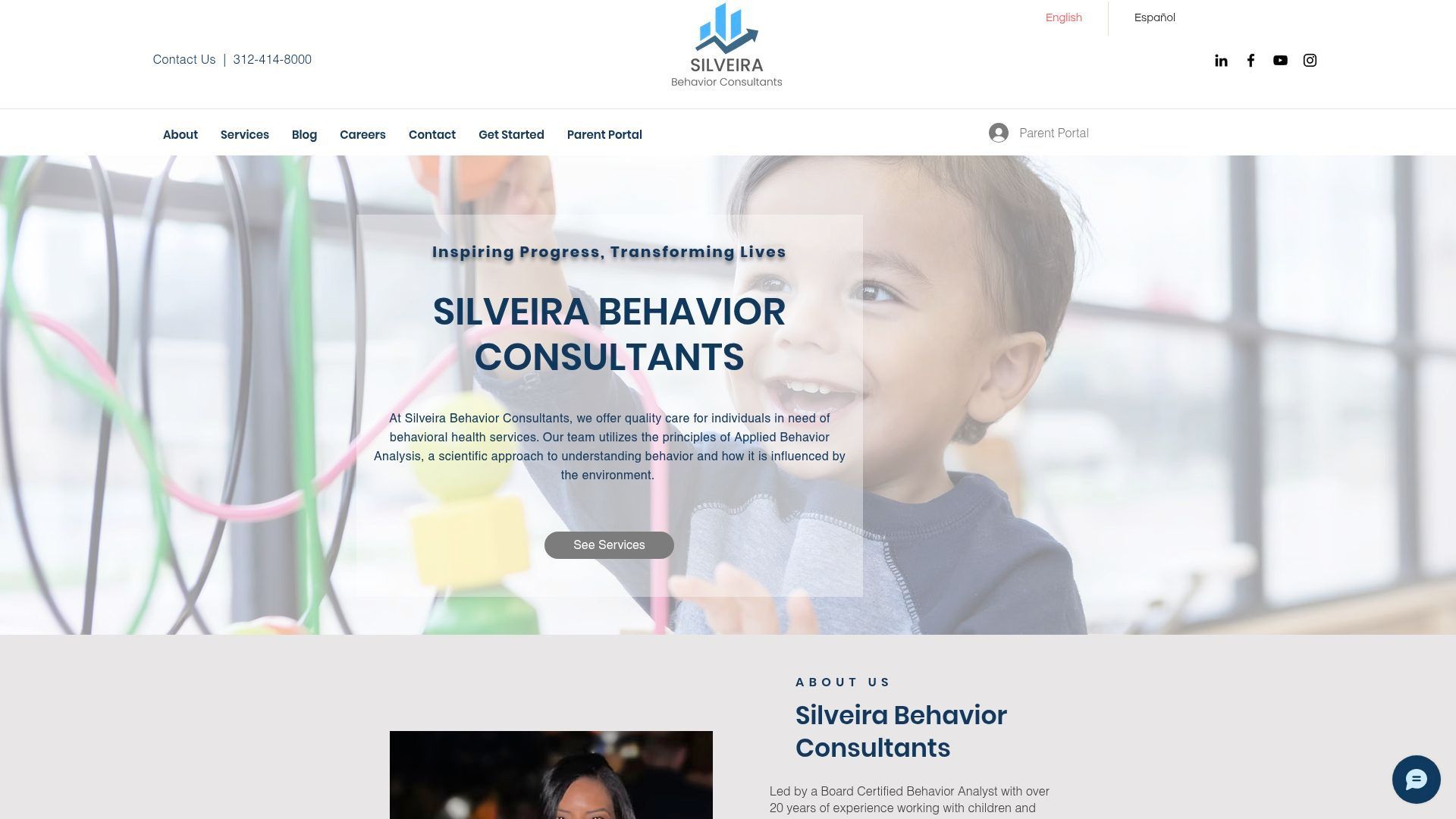Behavioral Analysis Program Guide 2025: Your Essential Resource & Career Roadmap
Behavioral analysis is playing a bigger role than ever in shaping education, healthcare, and business as we head into 2025. Whether you’re curious about starting a behavioral analysis program or aiming to take your expertise to the next level, this guide is designed to help you navigate every step.
Inside, you’ll find up-to-date insights on program fundamentals, career opportunities, what to expect from the curriculum, admissions tips, emerging trends, and how to choose the best fit for your goals. The world of behavioral analysis is growing fast—read on for the actionable knowledge you need to succeed.
Understanding Behavioral Analysis Programs: Essentials and Benefits
Behavioral analysis programs are gaining significant traction as demand for skilled professionals rises in diverse fields. Whether you're new to this area or seeking career advancement, understanding the essentials of a
behavioral analysis program is the first step. Let’s break down what these programs cover, the skills you’ll build, and who might benefit most from this scientific discipline.

WHAT IS BEHAVIORAL ANALYSIS?
Behavioral analysis is the scientific study of behavior and its underlying principles. At its core, a behavioral analysis program teaches how to observe, assess, and modify behavior using evidence-based strategies grounded in psychology.
- Key principles include reinforcement, punishment, and systematic behavior modification. These methods are designed to help individuals achieve positive change, whether in education, healthcare, or organizational settings.
If you’re seeking foundational knowledge, resources like the Basics of Applied Behavior Analysis offer a helpful starting point. In every behavioral analysis program, this scientific foundation is central to coursework and practice.
Types of Behavioral Analysis Programs
A behavioral analysis program may be offered at the undergraduate, graduate (Master’s, PhD), or certificate level. Undergraduate programs lay the groundwork, while graduate degrees dive deeper into research and clinical practice. Certificate options are ideal for professionals seeking additional credentials.
There are two main branches: Applied Behavior Analysis (ABA) focuses on practical interventions, while experimental behavioral analysis centers on research and theory. Many universities offer online, hybrid, and in-person delivery formats to match different learning needs.
Examples of program titles include:
- Bachelor of Science in Behavioral Analysis
- Master of Science in Applied Behavior Analysis
- Graduate Certificate in ABA
Specializations may target autism, organizational behavior, or behavioral health, depending on your career goals.
Core Competencies and Learning Outcomes
A behavioral analysis program equips you with essential competencies for real-world impact. You’ll learn to conduct behavioral assessments, design and implement interventions, and analyze data for effective treatment planning.
Key skills include:
- Evidence-based intervention strategies
- Ethical decision-making and professional conduct
- Cultural competence for diverse populations
- Clear and compassionate communication
These outcomes ensure graduates can work effectively across client populations and settings, supporting ethical and impactful practice.
Key Accreditation and Certification Bodies
Accreditation is a critical quality marker in any behavioral analysis program. The Association for Behavior Analysis International (ABAI) and the Behavior Analyst Certification Board (BACB) are leading accrediting bodies.
- Accredited programs meet rigorous standards, which is essential for licensure and employment.
- Certification pathways such as the Board Certified Behavior Analyst (BCBA) and Board Certified Assistant Behavior Analyst (BCaBA) are widely recognized in the field.
Completing a behavioral analysis program from an accredited institution positions you for certification, increasing your career opportunities and credibility.
Who Should Consider a Behavioral Analysis Program?
A behavioral analysis program suits a range of candidates. Aspiring clinicians, educators, researchers, and anyone passionate about behavior change will find value here.
Ideal traits include analytical thinking, empathy, and patience. Career changers or professionals seeking specialization in behavioral analysis are also well-suited. If you enjoy solving puzzles, making a tangible difference, and working with people, this path could be a perfect fit.
Behavioral analysis programs are designed to develop both technical expertise and personal growth, preparing you for a meaningful and dynamic career.
CAREER OPPORTUNITIES AND INDUSTRY OUTLOOK IN 2025
The landscape for those completing a behavioral analysis program in 2025 is more dynamic than ever. With demand rising, new specializations emerging, and technology changing the way services are delivered, this field offers diverse and rewarding career options.

IN-DEMAND ROLES AND WORK SETTINGS
Graduates of a behavioral analysis program can pursue roles such as Board Certified Behavior Analyst (BCBA), ABA Therapist, Clinical Supervisor, Researcher, and Consultant.
- Work Settings: These positions are found in various environments including public and private schools, outpatient clinics, hospitals, and private practices. Community organizations and early intervention centers also employ these professionals. Increasingly, organizations in the corporate sector are looking for experts trained in Organizational Behavior Management (OBM) to address workplace behavior and performance. This breadth of settings allows for flexibility and the opportunity to specialize in a preferred population or work style.
SALARY RANGES AND JOB GROWTH
Salaries for behavioral analysis program graduates continue to trend upward.
- Salary Ranges (2025): Entry-level ABA therapists (often RBTs) typically earn between $48,000$ and $62,000$ annually. Experienced BCBAs can command salaries from $70,000$ up to $110,000$ (and often higher for senior or specialized roles like those in private practice or OBM), depending on location and specialization.
- Job Growth: Job growth is particularly strong, with the industry noting an estimated $18 to $22 increase for behavioral analysts (BCBAs) over the next decade. Regional demand may be higher in urban areas or states with robust autism services (like California, New York, and Massachusetts). For further details on compensation and employment outlook, see the ABA Therapy Career Outlook.
EMERGING SPECIALIZATIONS AND SECTORS
As the field evolves, a behavioral analysis program can open doors to new and exciting specializations:
- Popular Tracks: Autism Spectrum Disorders (ASD), Organizational Behavior Management (OBM), Forensic Behavior Analysis, sports performance, and gerontology.
- Technology & New Sectors: Telehealth, digital data collection, and remote supervision are creating fresh opportunities. Corporate wellness, employee training, and tech sector roles now seek professionals with a behavioral analysis program background for innovative solutions in human performance.
REAL-WORLD IMPACT AND SUCCESS STORIES
The impact of a behavioral analysis program is best seen in client outcomes.
- Healthcare/Education: ABA interventions have led to measurable gains for children with autism, improving communication and daily living skills. In schools, behavior analysts develop effective plans to reduce disruptive behavior and boost academic success.
- Evidence: Case studies highlight how data-driven approaches help individuals achieve life-changing results. Whether working in healthcare, education, or the community, professionals trained in a behavioral analysis program are making a tangible difference.
PROFESSIONAL DEVELOPMENT AND ADVANCEMENT
A behavioral analysis program provides a clear path for career progression. Many start as entry-level therapists or technicians, moving up to BCBA, Clinical Supervisor, or Program Director roles with experience and advanced credentials.
- Growth Tools: Continuing education, professional conferences, and supervision are essential for growth. Active membership in professional organizations and networking can open doors to research, leadership, and consultation roles.
- Lifelong Learning: The field values lifelong learning, ensuring that those with a behavioral analysis program background stay at the forefront of best practices.
CURRICULUM AND COURSEWORK: WHAT TO EXPECT
Embarking on a behavioral analysis program means diving into a curriculum designed to blend theory, research, and hands-on experience. Whether you’re considering an undergraduate path, a master’s, or a certificate, understanding the core structure can help you make informed decisions and set clear expectations.

Foundational Courses and Core Subjects
Every behavioral analysis program starts with foundational courses that build your theoretical and practical base. Typical core subjects include:
- Principles of Behavior: Explore reinforcement, punishment, and the science behind behavior change.
- Ethics in Behavioral Analysis: Learn professional guidelines and ethical decision-making.
- Research Methods: Develop skills to design, conduct, and analyze behavioral research.
- Behavioral Assessment: Gain expertise in evaluating and measuring behavior.
Most programs require a practicum or supervised fieldwork. These experiences allow you to apply classroom knowledge in real-world settings, often under the guidance of a Board Certified Behavior Analyst (BCBA). By the end, you’ll be equipped to assess, design, and implement behavior interventions across diverse populations.
Advanced Topics and Electives
As you progress, a behavioral analysis program offers deeper dives into specialized topics. Advanced coursework typically includes:
- Functional Analysis: Master techniques to identify why behaviors occur (the function).
- Verbal Behavior: Study communication and language from a behavioral perspective.
- Organizational Behavior Management (OBM): Apply behavioral principles to workplace settings.
Electives let you tailor your experience, with options such as neurodevelopmental disorders, behavioral pharmacology, or even technology-assisted interventions. For a closer look at how training shapes advanced skills and career readiness, explore this ABA Therapy Training Overview.
Hands-On Training and Practicum Requirements
A hallmark of any behavioral analysis program is its emphasis on experiential learning. Practicum and internship requirements ensure you gain supervised, direct client experience. Expect to complete:
- Supervised hours: Ranging from 1,000 to 2,000+ depending on certification goals (BCaBA vs. BCBA).
- Documentation: Track your hours and progress according to BACB guidelines.
- Real-world application: Work with clients in clinics, schools, or community settings.
Supervision is structured, with regular feedback to build competency and confidence as you move toward independent practice.
Research Opportunities and Capstone Projects
Research is a core pillar of a behavioral analysis program, especially at the graduate level. You may have opportunities to:
- Conduct original research projects.
- Complete a thesis or capstone project.
- Present findings at conferences.
These experiences are invaluable for those considering a doctoral degree or a career in research, and they help you develop critical thinking and scientific communication skills.
Assessment and Evaluation Methods
How will your progress be measured in a behavioral analysis program? Expect a blend of:
| Assessment Type | Example Activities |
|---|---|
| Exams | Written tests, quizzes |
| Practical Assessments | Direct observation, role-play |
| Research Papers | Literature reviews, analysis |
| Fieldwork Competency | Supervisor evaluations |
This mix ensures you’re not only absorbing knowledge but also demonstrating practical skills and ethical judgment needed for the field.
ADMISSIONS: REQUIREMENTS, PROCESS, AND TIPS
Navigating admissions for a behavioral analysis program can feel overwhelming, but knowing what to expect makes the process much smoother. Understanding the requirements and strategies to stand out is essential for success. Below, we break down everything you need to know.
Academic Prerequisites and Experience
Each behavioral analysis program sets unique academic prerequisites.
- Undergraduate programs usually require a high school diploma or equivalent with a competitive GPA.
- Graduate programs often expect a bachelor’s degree, typically with coursework in psychology, education, or related fields.
Relevant work or volunteer experience gives applicants an edge. Hands-on roles in education, healthcare, or social services demonstrate commitment and provide practical insight into the field. Programs may also value prior exposure to behavior science concepts, research, or clinical settings.
Application Materials and Deadlines
Applicants should prepare several key documents:
- Official transcripts from all prior institutions.
- Letters of recommendation (usually two or three).
- A personal statement outlining goals and motivation.
- An updated resume or CV detailing relevant experience.
Deadlines vary by institution. Some behavioral analysis programs offer rolling admissions, while others have strict annual deadlines. Starting the process early ensures time to gather materials and request recommendations.
Tips for a Competitive Application
To make your behavioral analysis program application shine:
- Craft a personal statement that clearly links your background to your future goals and demonstrates critical thinking.
- Highlight any relevant work or volunteer experience in behavioral science or related areas.
- Demonstrate a strong understanding of the field and your chosen specialization.
- Seek mentorship or shadowing opportunities to gain deeper insight and stronger references.
- Research programs carefully; resources like the Choosing ABA Providers Guide can help you assess program quality and alignment with your interests.
A thoughtful, well-prepared application increases your chances of acceptance and sets the stage for a rewarding educational journey.
Pursuing a behavioral analysis program can be a significant investment, but several funding options are available:
| Funding Type | Description |
|---|---|
| Federal Student Aid | Grants, loans, and work-study programs |
| Institutional Scholarships | Merit-based or need-based awards from schools |
| External Scholarships | Offered by professional associations |
| Employer Tuition Assistance | Support from current workplace |
Scholarships and International Student Considerations
Some programs and organizations offer scholarships specifically for behavioral analysis students. Always check with your prospective school’s financial aid office for the latest opportunities and deadlines.
- International applicants must meet additional requirements, often including proof of English proficiency (TOEFL or IELTS), credential evaluation, and visa documentation.
- Programs increasingly emphasize diversity and inclusion, offering dedicated support services, such as cultural adjustment workshops and language resources, to help international students thrive. Embracing diverse perspectives enriches the learning environment and prepares graduates for multicultural practice.
TRENDS AND INNOVATIONS IN BEHAVIORAL ANALYSIS FOR 2025
Integration of Technology and Telehealth
Technology is transforming the behavioral analysis program experience. Telehealth and remote therapy platforms now allow practitioners to reach clients across distances, breaking down barriers to care.
- Digital solutions enhance collaboration and are used for real-time data collection and intervention tracking (e.g., mobile apps, specialized software).
- This tech-forward approach is especially evident in applied behavior analysis for autism, making services more accessible and effective. Choosing a program with strong tech integration is essential for future-ready practitioners.
Culturally Responsive and Inclusive Practices
Modern behavioral analysis program curricula emphasize cultural competence and inclusion.
- Programs are updating coursework to reflect diverse populations and unique community needs.
- Students learn to adapt evidence-based practices to different cultures, languages, and family structures, ensuring interventions are respectful, relevant, and effective for every client.
- Inclusion also means recruiting diverse faculty and students, preparing graduates to serve an increasingly global and multicultural society.
Interdisciplinary Collaboration and Research
Collaboration is a cornerstone of today’s behavioral analysis program design.
- Many programs partner with psychology, neuroscience, education, and healthcare departments for joint research and integrated coursework.
- This interdisciplinary approach gives students a broader perspective and access to new research methods, enhancing their impact in the job market.
Policy, Regulation, and Advocacy Updates
Policy and regulatory changes are shaping the future of every behavioral analysis program.
- Updates in licensure requirements, insurance coverage, and practice standards influence how services are delivered.
- A quality behavioral analysis program will offer courses and seminars on policy trends and advocacy strategies.
Future Skillsets and Competencies
New skillsets are emerging as must-haves for behavioral analysis program graduates:
- Digital literacy, advanced data analysis, and the ability to work within multi-disciplinary teams are now essential.
- Continuing education in areas like artificial intelligence, remote intervention design, and outcome measurement is becoming standard. Programs that foster these skills ensure graduates are prepared for evolving industry needs and leadership roles.
HOW TO CHOOSE THE RIGHT BEHAVIORAL ANALYSIS PROGRAM
Evaluating Accreditation and Program Reputation
Start by ensuring any behavioral analysis program you consider holds proper accreditation. Accreditation from respected organizations, like the Association for Behavior Analysis International (ABAI), signals quality and adherence to industry standards.
- A strong reputation often means experienced faculty, robust alumni networks, and high pass rates for certification exams.
Comparing Curriculum and Specializations
Not all behavioral analysis program curricula are created equal. Review core courses, practicum requirements, and available electives.
- Does the program offer specializations that match your interests, such as autism intervention or organizational behavior management? The right program should provide both a strong theoretical base and hands-on training.
Balancing Flexibility: Online vs. On-Campus
Flexibility is crucial. Many behavioral analysis program options now offer online or hybrid formats.
- Weigh factors like scheduling, commute, and available technology support. The best program format fits your lifestyle and maximizes your engagement.
Assessing Support Services and Resources
A high-quality behavioral analysis program should offer robust support services.
- Look for academic advising, career counseling, mentorship opportunities, and field placement support. These support systems can make a significant difference in your success.
Understanding Costs and Return on Investment
Understanding the full costs of a behavioral analysis program is vital.
- Compare tuition, fees, and additional expenses. Think about long-term benefits: graduates from accredited programs often see higher earning potential and job stability.
Choosing ABA Therapy Providers: Spotlight on Silveira Behavior Consultants
When considering a behavioral analysis program, it’s also valuable to explore leading ABA therapy providers for practical experience and career connections. Silveira Behavior Consultants, based in Chicago, stands out for their evidence-based, individualized approach. They emphasize family involvement, offering comprehensive and focused ABA therapy, parent training, school consultation, and both in-home and clinic-based services.

Selecting a partner like Silveira, whether for fieldwork during a behavioral analysis program or for future employment, offers several key advantages for aspiring BCBAs:
- Multicultural Competence: Exposure to bilingual (English/Spanish) services and culturally responsive care is now essential in ABA. This real-world practice enhances your ability to serve diverse communities effectively.
- Ethical Practice: A focus on accessible and affordable care demonstrates adherence to the ethical obligations of the profession, which is a core component of the modern behavioral analysis program curriculum.
- Personalized Training: Working with a team that emphasizes a family-centered approach and individualized treatment plans ensures your training is hands-on, flexible, and relevant, bridging the gap between theory and application.
Next Steps for Your ABA Journey
If you’re ready to take the next step in your journey—whether you’re exploring behavioral analysis programs or seeking real-world ABA therapy for yourself or a loved one—remember that support and guidance are key.
At Silveira Behavior Consultants, they are dedicated to helping you navigate your options with personalized care, practical expertise, and a family-centered approach.
If you have questions or want to learn more about how they can help you or your family thrive, don’t hesitate to
Contact Us.





